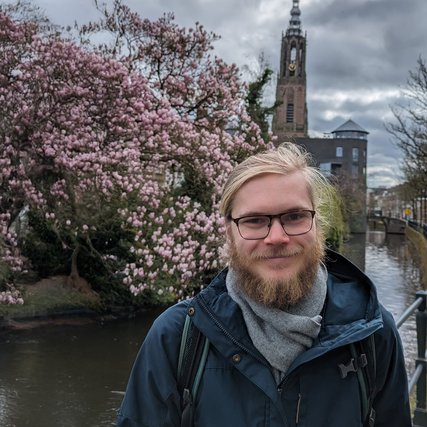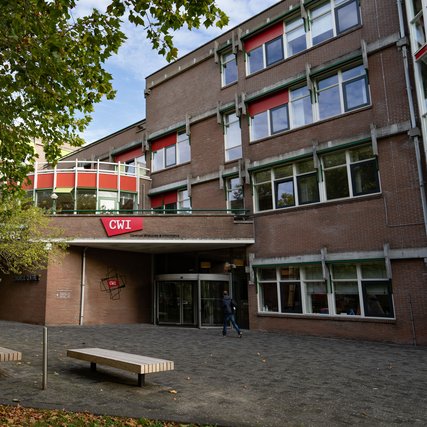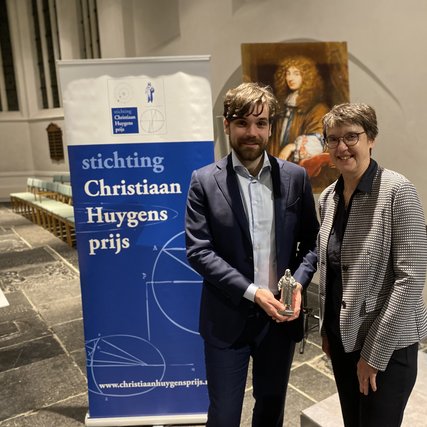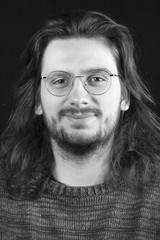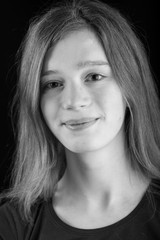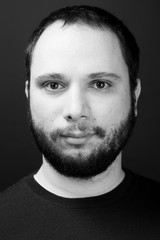The leader of the group Networks and Optimization: Daniel Dadush
Networks and Optimization
Developing algorithms to tackle complex optimization and large scale data-analysis problems by combining techniques from mathematics and computer science.
In today’s society, complex systems and massive datasets surround us. From transport and traffic, to behavioral economics and biology, real-world applications demand that we identify optimal solutions among a huge set of possibilities, as well as patterns from gigantic datasets. Our research group, Networks and Optimization (N&O), does fundamental and high-impact research which tackles these challenging problems.
As our main activity, we develop algorithms to efficiently solve optimization problems from areas such as planning, scheduling and routing, and data analysis problems in domains such as pattern matching and indexing. Our expertise ranges from discrete to continuous optimization, in both centralized and decentralized settings, as well as the design and analysis of data structures. We focus both on the development of problem-specific methods as well as general algorithmic techniques. To design the next-generation of algorithms, we combine insights and approaches from diverse areas within mathematics and computer science. In particular, we explore and exploit the varied combinatorial, geometric and algebraic structures underlying our problems, such as graphs, matroids, strings, lattices and polynomials.
In collaboration with our industry partners, we have applied the algorithms developed within the group to solve a variety of real-world problems that are both complex and data-intensive. We are always interested in new algorithmic challenges arising in applications and are open to new cooperations.
Watch our group video to get a glimpse of our activities or read more information on the Networks and Optimization research group.
Take a look at our current and past seminars.
Together with colleagues of Dutch universities we also organize a Dutch Seminar on optimization.
Events
All events-
StartEndMaximal Palindromes in MPC: Simple and Optimal
Members
Associated members
Publications
All publicationsCourses
All courses-
Algorithmic Game Theory4 mar 2026 - 15 may 2026
-
Semidefinite Optimisation6 feb 2026 - 21 may 2026
-
Algorithms in Sequence Analysis27 oct 2025 - 19 dec 2025
-
Algorithmic Game Theory UvA1 sep 2025 - 16 oct 2025
-
Algorithmic Mechanism Design17 feb 2025 - 28 apr 2025
-
Networks and Semidefinite Programming18 nov 2024 - 10 feb 2025
-
Algorithms in Sequence Analysis28 oct 2024 - 20 dec 2024
-
Algorithmic Game Theory2 sep 2024 - 19 oct 2024
-
Algorithmic Game Theory UvA1 sep 2024 - 16 oct 2024
-
Fundamentals of Bioinformatics1 sep 2024 - 31 oct 2024
-
Algorithmic Game Theory4 mar 2024 - 6 may 2024
-
Semidefinite Optimisation8 feb 2024 - 23 may 2024
-
Algorithms in Sequence Analysis1 nov 2023 - 28 feb 2024
-
Continuous Optimization1 oct 2023 - 1 dec 2023
-
Algorithmic Game Theory UvA1 sep 2023 - 16 oct 2023
-
Fundamentals of Bioinformatics1 sep 2023 - 31 oct 2023
-
Advanced Linear Programming1 apr 2023 - 31 may 2023
-
Algorithmic Game Theory1 mar 2023 - 23 may 2023
-
Algorithmic Mechanism Design24 feb 2023 - 28 apr 2023
-
Networks and Semidefinite Programming21 nov 2022 - 20 feb 2023
-
Algorithmic Game Theory UvA1 sep 2022 - 16 oct 2022
-
Fundamentals of Bioinformatics1 sep 2022 - 31 oct 2022
-
Semidefinite Optimization1 feb 2022 - 31 may 2022
Current projects with external funding
- Advances in Large-scale, Multilevel, and Hierarchical Optimisation for Challenging Applications (ALMOA) (ALMOA)
- Constance van Eeden Fellowship (Constance van Eeden)
- Networks (Networks)
- Networks COFUND postdocs (Networks COFUND postdocs)
- Partition functions of large-degree networks (None)
- Optimization for and with Machine Learning (OPTIMAL)
- Optimization for and with Machine Learning (OPTIMAL2)
- Pan-genome Graph Algorithms and Data Integration (PANGAIA)
- Tensor modEliNg, geOmetRy and optimiSation (TENORS)

